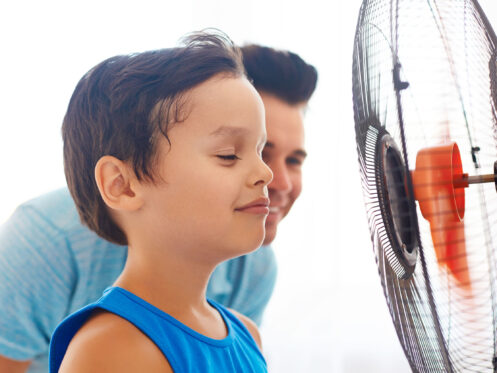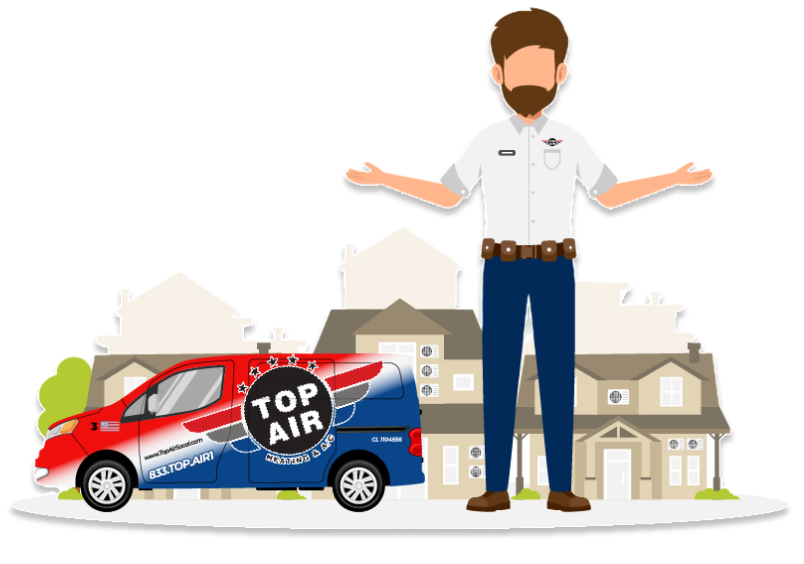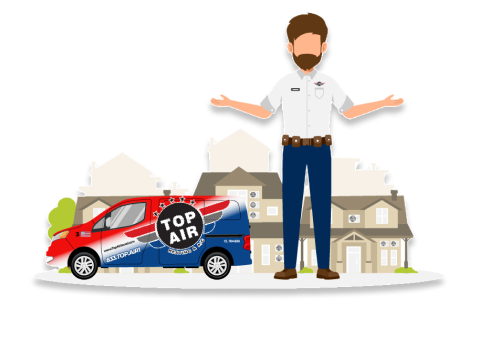When you live in West Covina, CA, you’re no stranger to hot, humid days, especially in the summer. Having a fully functional, efficient cooling system during these times is of the utmost importance. But even with the most reliable setup, the humidity can still impact how much energy the AC uses. This is mostly because the excess moisture makes the air feel warmer. Fortunately, there are ways to mitigate humidity for better comfort and efficiency.
Increased Cooling Load
Cooling systems don’t just cool air; they also remove moisture (which holds heat). During periods of high humidity, the AC will run for longer and use more energy to keep pulling out the moisture. This increases the total cooling load and makes the system more expensive to operate. Homes with poor airflow or aging systems feel this effect even more.
Reduced Heat Transfer Efficiency
Cooling systems have to have a smooth heat exchange process. If they don’t, moisture will collect on the coils, which means they can’t absorb heat as quickly. As a result, the cooling process occurs much more slowly and uses more energy. In extreme cases, the coils will freeze and cause the whole system to shut down.
Short Cycling or Constant Running
It’s not uncommon for cooling systems to short-cycle during times of high humidity. Short cycling means it turns on and off fast over and over, using more and more energy. This not only causes extreme wear on the AC but also translates into uncomfortable, hot, and sticky living spaces. High humidity can also lead to the AC not turning off at all in an attempt to cool the home. Whether it’s short-cycling or constantly running, both scenarios are bad. They lead to premature replacements and higher energy costs.
Ways to Reduce Humidity’s Impact On the AC
Now that you understand all of the different ways humidity impacts your AC, it’s time to take action. The following are some helpful fixes for humidity problems that will improve comfort and boost system efficiency.
Use a Whole-Home Dehumidifier
A whole-home dehumidifier connects directly to the AC. It provides whole-house dehumidification so the AC doesn’t have to work as hard. The best part about this setup is its automatic operation. Every time the AC kicks on, the dehumidifier will cycle on to remove excess moisture in the air. It’s a great way to maintain stable humidity year-round.
Seal Air Leaks and Improve Insulation
Any time your home has air leaks around doors or windows, it’ll increase humidity problems. This is because moisture will seep in through cracks and gaps between the walls and frames. The AC will have to consume a lot of energy to keep the house comfortable because the moisture makes the air feel warmer. By sealing the leaks with weatherstripping or caulk, you’ll prevent the moisture from coming into the house and affecting the cooling load.
Schedule Regular HVAC Maintenance
Regular HVAC tune-ups are another smart move to help with humidity problems. A technician will wipe down all parts, including the coils, so they operate with the highest efficiency. They’ll also lubricate all moving parts so they experience as little friction as possible. Booking an AC tune-up at the end of winter or the beginning of spring will ensure it’s ready to perform efficiently when you need it most.
Run Exhaust Fans in Kitchens and Bathrooms
When you’re cooking or showering, turn on the exhaust fans to remove steam and moisture from the air. If there are any nearby windows, you can open them to help with airflow and ventilation. This small but simple step makes a huge difference in keeping humidity levels under control. The AC won’t have to work as hard or use as much energy to keep the home cool.
Set Your Thermostat to “Auto”
You never want the AC to run nonstop. This causes major issues with humidity because it doesn’t get the chance to complete a proper cooling cycle. The water will collect on the coils and fail to drain properly. To avoid a constantly running AC, make sure to set the thermostat to Auto instead of On.
Change the Air Filter Regularly
One of the biggest causes of humidity problems is a clogged air filter. This makes it nearly impossible for the AC to circulate air and remove moisture effectively. By keeping the filter changed, you’ll ensure better airflow, improved efficiency, and more consistent humidity control. Most cooling systems require filter changes every 30 to 60 days. Ductless versions need new filters every two weeks.
Top Air Heating & A/C is here to answer any questions you have about humidity and its effect on your cooling system. We provide expert repairs, installations, and tune-ups for air conditioners of all types.
Call Top Air Heating & A/C now to book professional AC services in West Covina.




